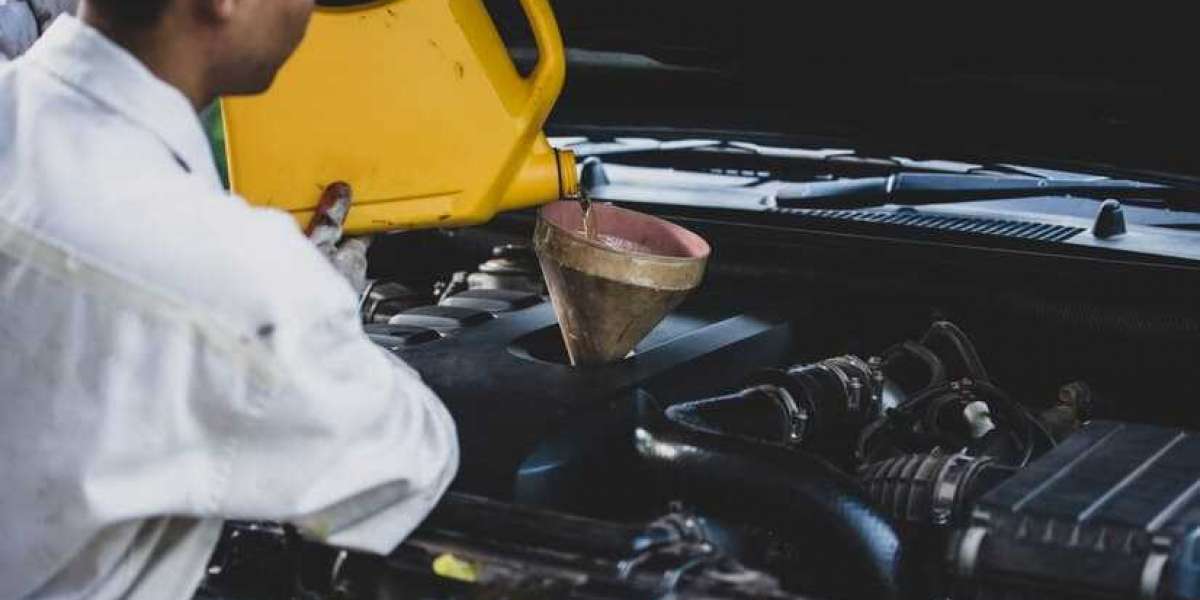The fuel system of a vehicle plays a crucial role in ensuring optimal performance and efficiency. It is responsible for delivering fuel from the tank to the engine, where it is mixed with air and ignited to produce power. A well-maintained fuel system not only enhances performance but also improves fuel efficiency and reduces emissions. Unfortunately, neglecting this vital system can lead to costly fuel system repair and significant downtime. This article provides a comprehensive guide on how to maintain your fuel system effectively and prevent repairs.
Understanding the Fuel System
To appreciate the importance of maintenance, it’s essential to understand the components of the fuel system. The primary elements include:
- Fuel Tank: Stores the fuel until it is needed by the engine.
- Fuel Pump: Transfers fuel from the tank to the engine. It may be located inside the tank or externally.
- Fuel Filter: Cleans the fuel by removing impurities and contaminants before it reaches the engine.
- Fuel Injectors: Spray a precise amount of fuel into the engine’s combustion chamber for efficient combustion.
- Fuel Lines: Transport fuel between the tank, pump, filter, and injectors.
Each component must work in harmony for the fuel system to function effectively. Any disruption can lead to performance issues, increased emissions, and ultimately, the need for repairs.
Common Fuel System Problems
Recognizing the signs of fuel system issues early can help prevent more extensive damage. Here are some common problems that can arise:
Clogged Fuel Filter: A clogged filter can restrict fuel flow, leading to reduced engine performance and efficiency. Symptoms may include sluggish acceleration and difficulty starting the engine.
Failing Fuel Pump: A failing pump may struggle to deliver fuel to the engine, resulting in stalling, loss of power, or engine misfires. If the fuel pump is faulty, it may make unusual noises or fail entirely.
Dirty Fuel Injectors: Over time, fuel injectors can become clogged with deposits, affecting their ability to spray fuel properly. This can lead to poor fuel economy, rough idling, and increased emissions.
Fuel Line Leaks: Damaged or corroded fuel lines can lead to leaks, which are not only detrimental to performance but also pose a fire hazard. Signs of a leak may include a strong smell of gasoline or visible fuel stains under the vehicle.
Contaminated Fuel: If contaminated fuel is introduced into the system, it can lead to a range of issues, including clogged filters and injectors. Water, dirt, and other contaminants can compromise the integrity of the fuel.
Understanding these common issues allows vehicle owners to take action before they escalate, potentially saving time and money on repairs.
Preventive Maintenance for Your Fuel System
Maintaining your fuel system involves regular checks and adopting good practices. Here are several effective strategies to keep your fuel system in optimal condition:
1. Regular Fuel Filter Replacement
The fuel filter plays a critical role in keeping contaminants out of the engine. It is advisable to replace the fuel filter according to the manufacturer's recommendations, typically every 20,000 to 30,000 miles. Regular replacement ensures that the filter functions effectively and prevents clogs that can lead to performance issues.
2. Monitor Fuel Quality
Using high-quality fuel is essential for maintaining the integrity of the fuel system. Low-quality fuels may contain impurities that can clog filters and injectors. Whenever possible, choose reputable gas stations known for providing clean fuel. Additionally, consider using fuel additives designed to clean the fuel system and enhance performance.
3. Keep the Fuel Tank Full
Maintaining a full fuel tank can help prevent condensation from forming inside the tank, which can introduce water into the fuel system. Water can lead to corrosion and other issues. Additionally, keeping the tank at least a quarter full helps ensure that the fuel pump remains submerged, preventing overheating and premature failure.
4. Check for Leaks Regularly
Regularly inspecting the fuel lines, connections, and tank for signs of leaks is vital. Look for any visible signs of fuel on the ground or a strong gasoline smell. If leaks are detected, have them repaired immediately to prevent further damage and safety hazards.
5. Schedule Regular Inspections
Having the fuel system inspected by a qualified mechanic can help identify potential issues before they escalate. During a professional inspection, technicians can check the fuel pump, filter, lines, and injectors for signs of wear or damage. Regular inspections are particularly crucial for older vehicles or those with high mileage.
6. Pay Attention to Symptoms
Being attentive to your vehicle's performance can help you catch fuel system issues early. If you notice symptoms such as decreased fuel efficiency, difficulty starting, or unusual noises, it’s essential to address these concerns promptly. Ignoring warning signs can lead to more extensive repairs and increased costs.
7. Use Fuel System Cleaners
Periodically using a fuel system cleaner can help remove deposits from fuel injectors and intake valves, improving performance and efficiency. However, choose a cleaner that is compatible with your vehicle and follow the manufacturer’s instructions for use.
The Benefits of Proper Fuel System Maintenance
Maintaining your fuel system offers numerous benefits that extend beyond just preventing repairs. Here are some significant advantages of regular maintenance:
Improved Fuel Efficiency: A clean and well-functioning fuel system allows for more efficient fuel combustion, leading to better fuel economy. This can result in significant savings at the pump over time.
Enhanced Performance: A properly maintained fuel system ensures that the engine receives the right amount of fuel when needed, leading to smoother acceleration and overall performance.
Reduced Emissions: A clean fuel system can help reduce harmful emissions, contributing to a cleaner environment and helping to meet regulatory standards.
Increased Lifespan of Components: Regular maintenance can extend the life of the fuel system components, such as the pump and injectors, reducing the need for costly repairs and replacements.
Peace of Mind: Knowing that your fuel system is in optimal condition provides peace of mind while driving. It reduces the likelihood of unexpected breakdowns and enhances the overall driving experience.
Conclusion: Keep Your Fuel System in Top Condition with CARma Auto Care
Maintaining your fuel system is crucial for ensuring the longevity and performance of your vehicle. By understanding the components and common issues, as well as implementing effective maintenance strategies, vehicle owners can prevent costly fuel system repairs and enjoy a smoother, more efficient ride. Regular inspections, quality fuel, and timely replacements can make all the difference in keeping your fuel system in optimal condition.
For those seeking expert assistance, consider reaching out to CARma Auto Care. Our skilled technicians are here to help you maintain your fuel system and ensure your vehicle runs at its best.







